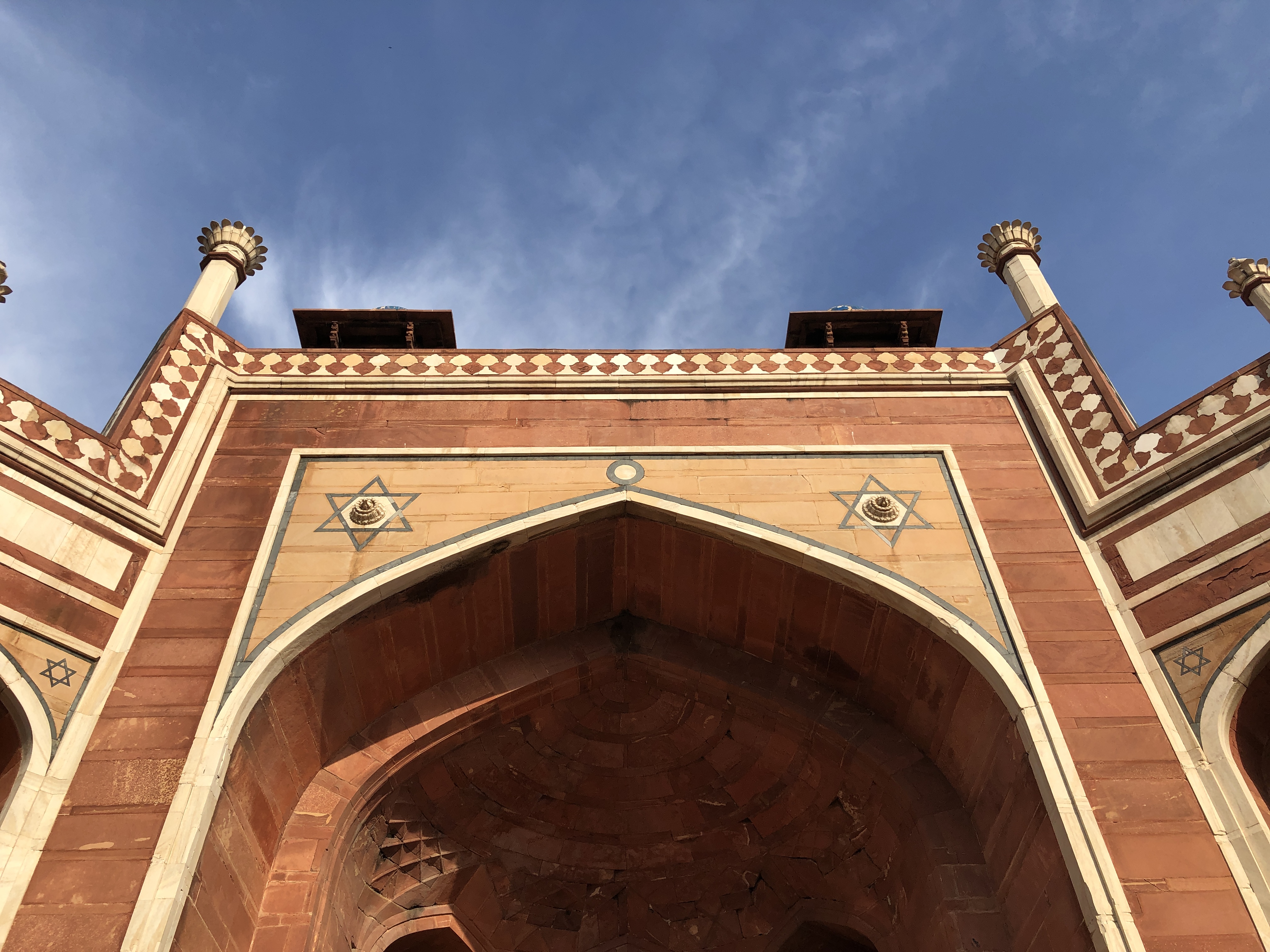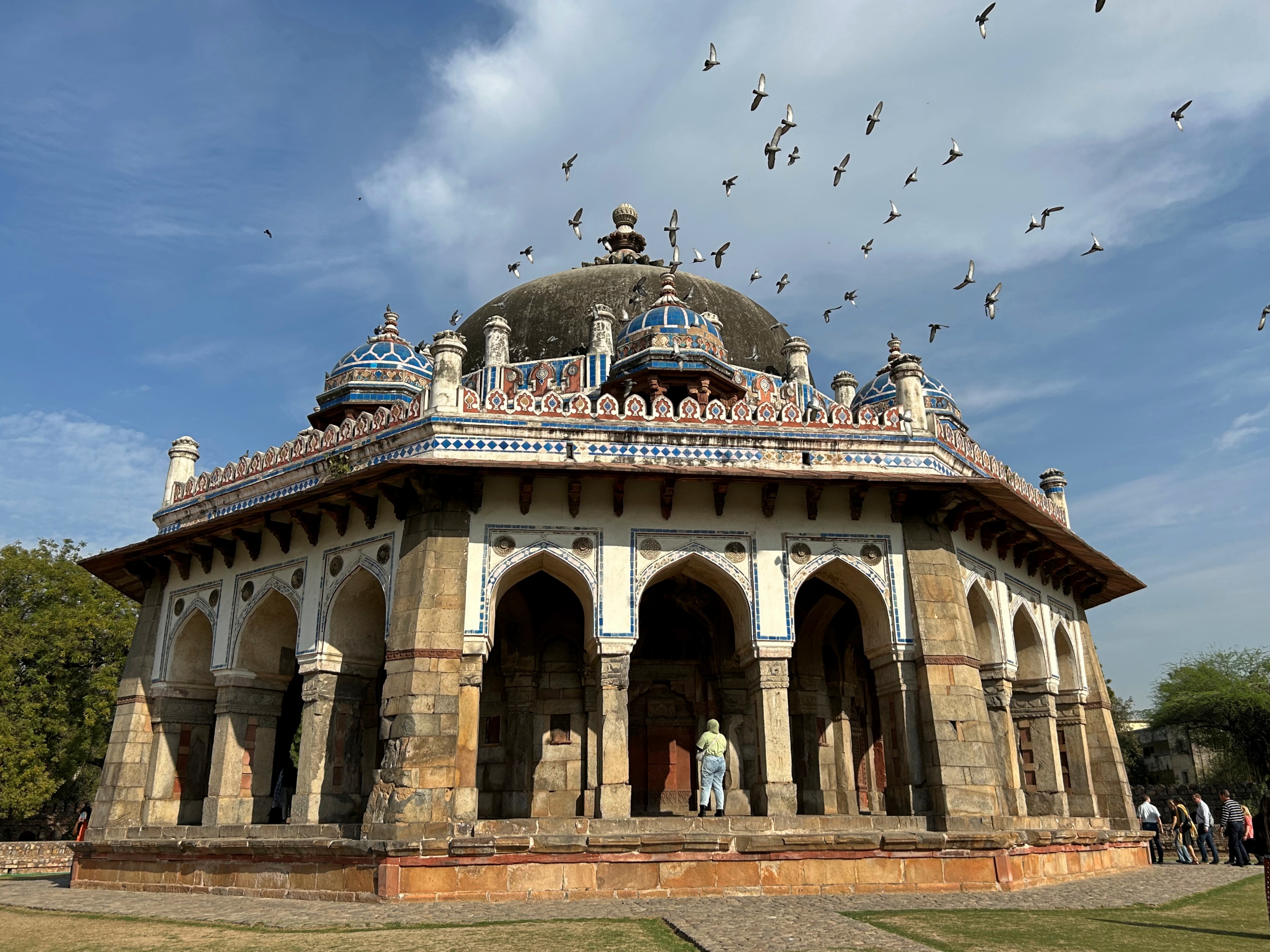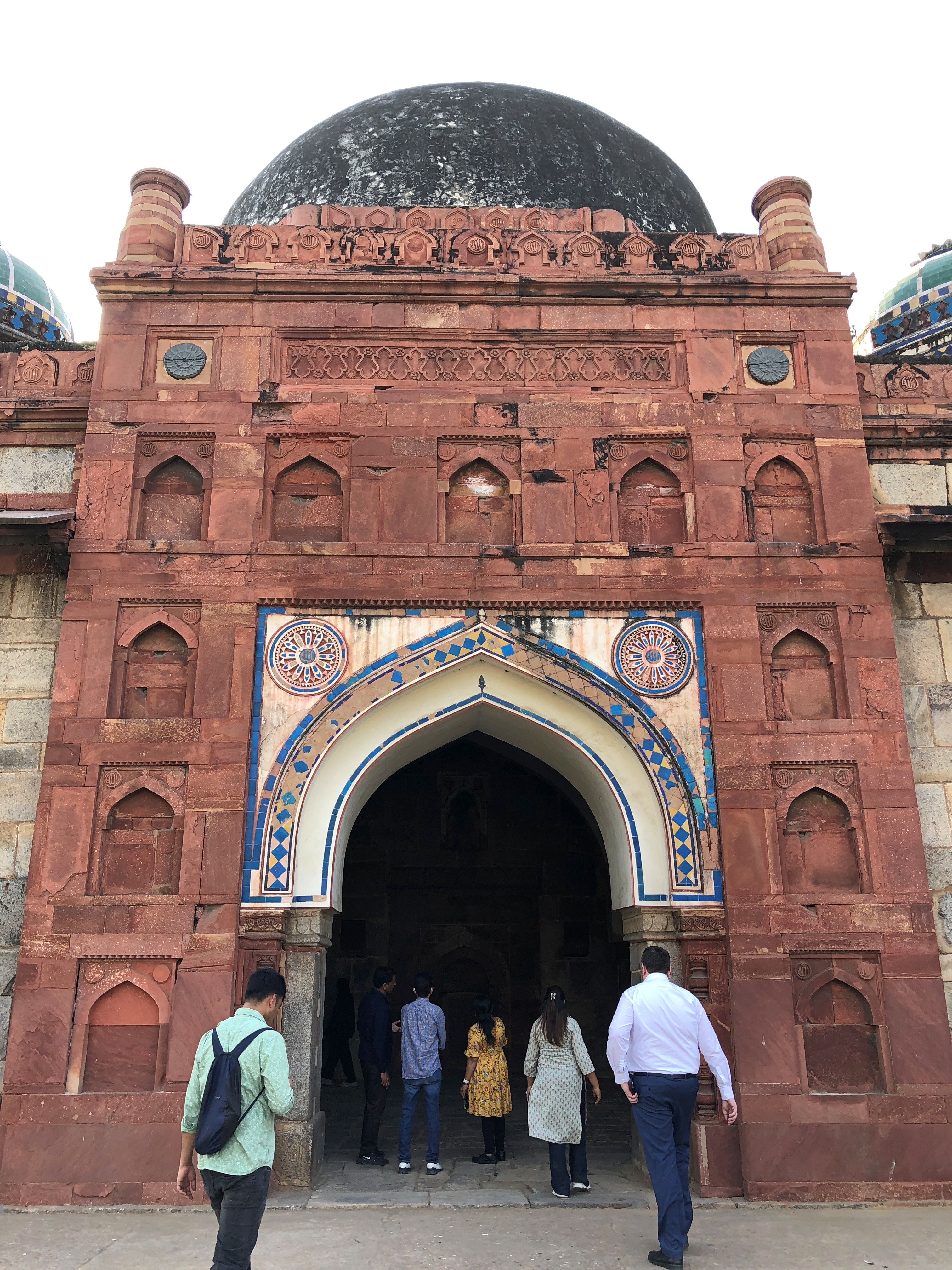Just outside the gates of Humayun’s Tomb in Delhi, I spotted postcards for a sale from a street vendor, which was a rarity. I paused to look. That was a mistake. Before you could say boo, several other vendors – those that didn’t even have a spot on the near the gates, but who carried their wares around – were in my face. Inexpensive jewelry-, souvenir- and tchotchke-wallas. The only thing for it was to keep moving.
We were at the tomb on February 19. As a Mughal emperor, Humayun (d. 1556) rated one of considerable splendor.

“Persian and Indian craftsmen worked together to build the garden-tomb, far grander than any tomb built before in the Islamic world,” notes UNESCO, for indeed the tomb complex is a World Heritage Site. “Humayun’s garden-tomb is an example of the charbagh (a four quadrant garden with the four rivers of Quranic paradise represented), with pools joined by channels.”

“The mausoleum itself stands on a high, wide terraced platform with two bay deep vaulted cells on all four sides,” UNESCO continues. “It has an irregular octagon plan with four long sides and chamfered edges. It is surmounted by a 42.5 m high double dome clad with marble flanked by pillared kiosks (chhatris) and the domes of the central chhatris are adorned with glazed ceramic tiles.
“The interior is a large octagonal chamber with vaulted roof compartments interconnected by galleries or corridors. This octagonal plan is repeated on the second storey. The structure is of dressed stone clad in red sandstone with white and black inlaid marble borders. Humayun’s garden-tomb is also called the ‘dormitory of the Mughals’ as in the cells are buried over 150 Mughal family members.”
A precursor to the Taj Mahal, it is said. I can see that. But Humayun wasn’t the only eminence to have a mausoleum on the grounds. There are others, such as that of Isa Khan (d. 1548), who was there first.
A more manageable-sized mausoleum.



Isa Khan wasn’t royalty, but rather a noble, in service of the short-lived Sur Empire, whom the Mughals eventually overcame.
Seems easier to appreciate the details in a smaller-scale edifice.


Not far from his tomb is a mosque named for him.

Also has some worthwhile detail.
Humayun and Isa Khan: Not on the same side in life, but in death good neighbors.